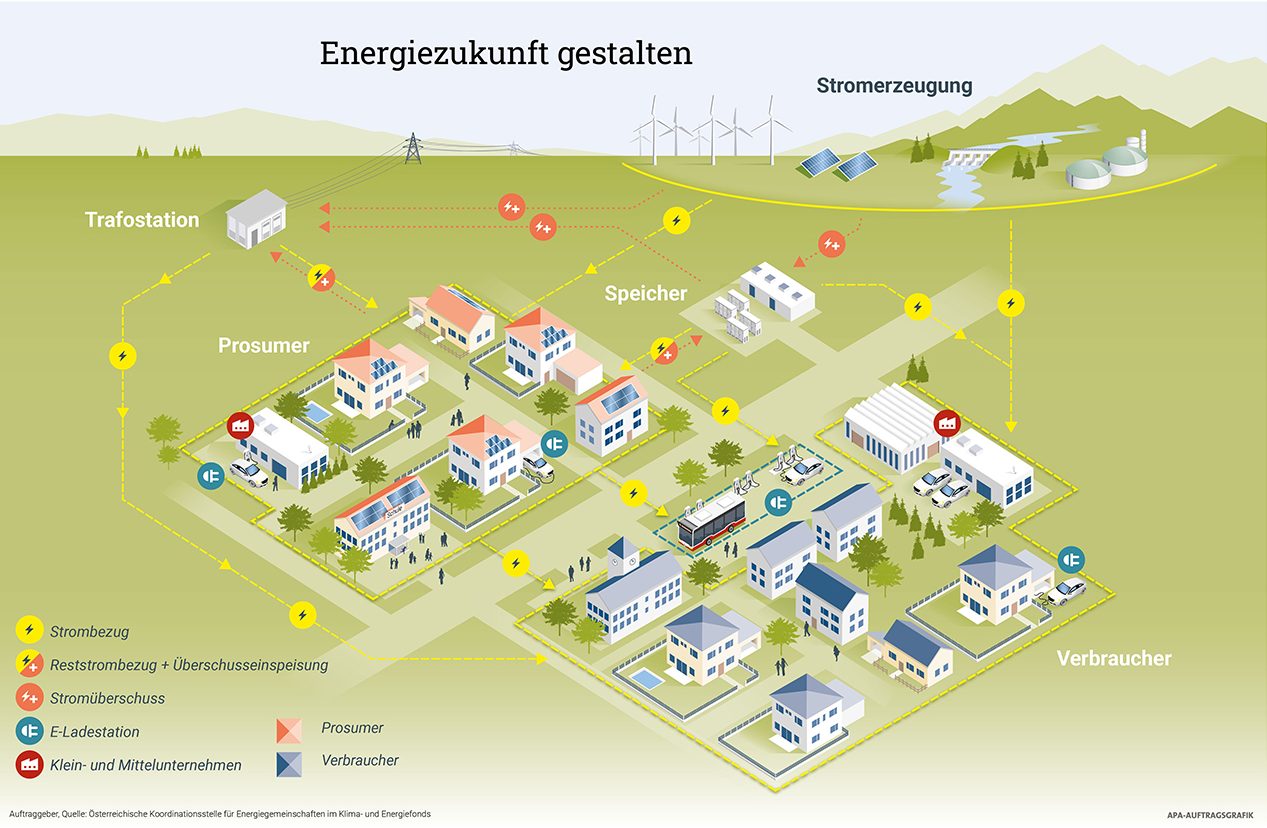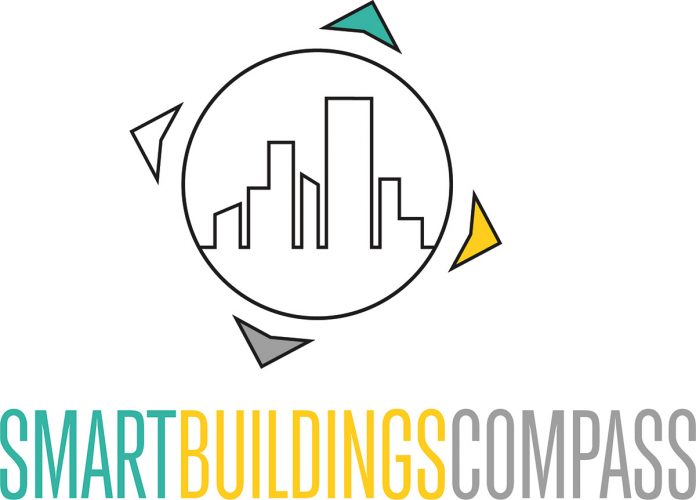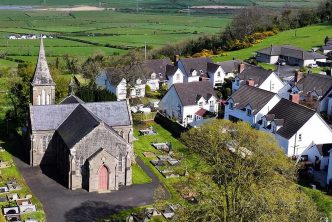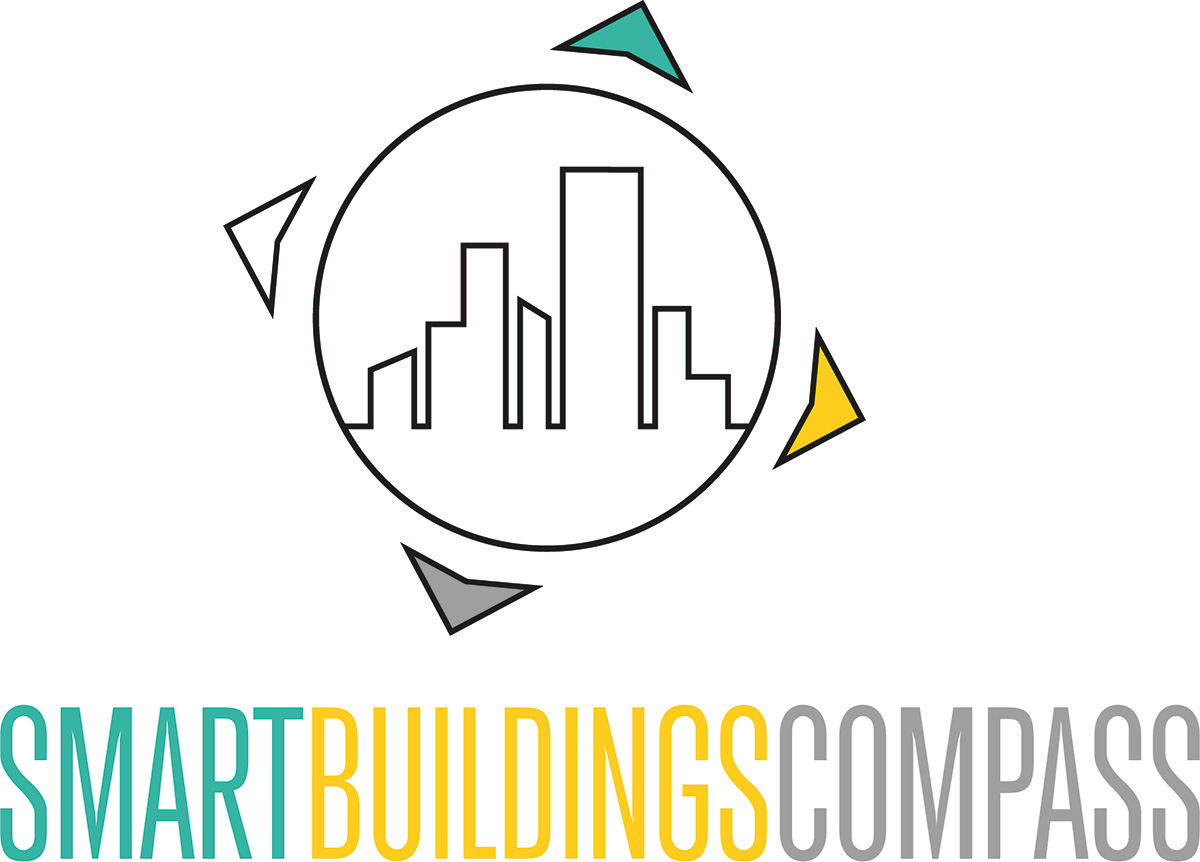An energy community is an association of at least two, but usually several participants, in order to be able to both jointly produce and use energy in the form of electricity, heat and biogas. Members of this community can produce, store, sell, and consume energy across property lines. Such energy communities are also driving the energy transition forward, primarily through the expansion of decentralized energy systems. In addition, economic incentives arise and the regional value chain is strengthened.

Source:Austrian Coordination Office for Energy Communities
There are two energy community models: On the one hand, the locally restricted “Renewable Energy Community” (EEG) and, on the other hand, the “Citizens’ Energy Community”, which is geographically unrestricted within Austria. An EEG may produce, store, consume and sell energy (electricity, heat or gas) from renewable sources. EEGs use the grid operator’s assets (like the power grid). They only have to be located within the network operator’s concession area.
Similar regulations apply to citizen energy communities as to renewable energy communities, but in contrast to the EEG, the BEG may only generate, store, consume and sell electrical energy. It is not limited to renewable sources and may cover the concession areas of several grid operators throughout Austria.






